This lemon scented flower will transform your sensory Garden

This post follows our research editorial guidelines.

Creating a garden that pleases the senses can be a rewarding gardening experience. It’s why I look to herbs like Flowering Lemon Thyme (Thymus citriodorus) to not only enhance the aromatic charm of my garden but also offer its practical benefits. This versatile perennial, known for its lemon scented leaves. The small flowers that sprout out serve as a colorful ground cover and will bring pollinators to any sensory garden. Lets explore how best to utilize this fragrant herb to craft a rich garden that will be a feast for your senses.
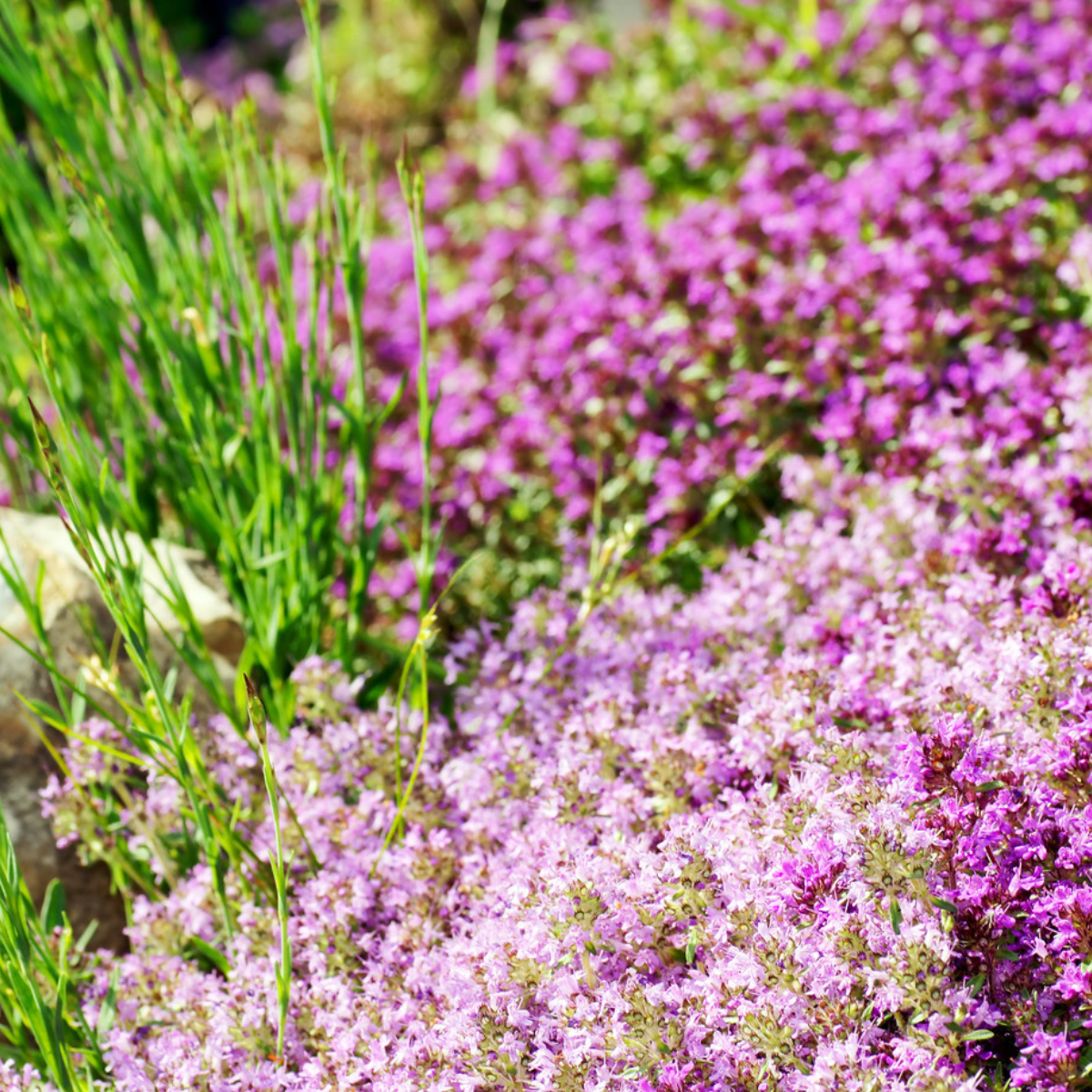
Quickly Find Lemon Thyme Growing Tips:
A Delight for the Senses
Picture strolling down a garden path feeling the tiny leaves of Lemon Thyme brushing against your legs releasing a refreshing citrus scent with each step. Planting this herb near pathways or seating areas creates an experience that stimulates both smell and touch senses. The gentle leaves along with its lavender blooms add tactile appeal perfect for any sensory focused garden design.

Practical Ground Cover Uses
Lemon Thyme is not just about sensory experiences; it also offers practical benefits. It helps in soil stabilization, prevents erosion and suppresses weed growth. Once established Lemon Thyme will thrive I a variety of conditions—making it an excellent choice, for xeriscaping gardens as well.
This hardy plant is also perfect for planting in sunny spots and can even grow in the cracks between pavers, adding greenery to these spaces while naturally keeping the weeds at bay.
Best Places to Grow Lemon Thyme in Your Garden
To fully enjoy the sensory benefits of Lemon Thyme try out these planting techniques:
Next to Pathways: Its scent enhances the stroll around your garden.
Near Outdoor Seating: Plant it where your up close to it’s fragrance, like where you have your morning cup of coffee.
Underfoot in Paver Cracks: It can withstand light foot traffic and adds a fragrant touch to stiff outdoor surfaces.
Sunny Locations; Lemon Thyme loves to be planted under full sun, the summer heat will only enhance the lemon scented aroma.
Did you know?
Beyond the garden, Lemon Thyme is kitchen favorite and can be used as a natural remedy. Its leaves add a lemon zest flavor to dishes like chicken or beef, offering a milder alternative to lemon itself. Similar to lemons its antiseptic properties make it a great addition to homemade cleaners, promoting a healthier, chemical-free home.
Taking Care of Your Lemon Thyme
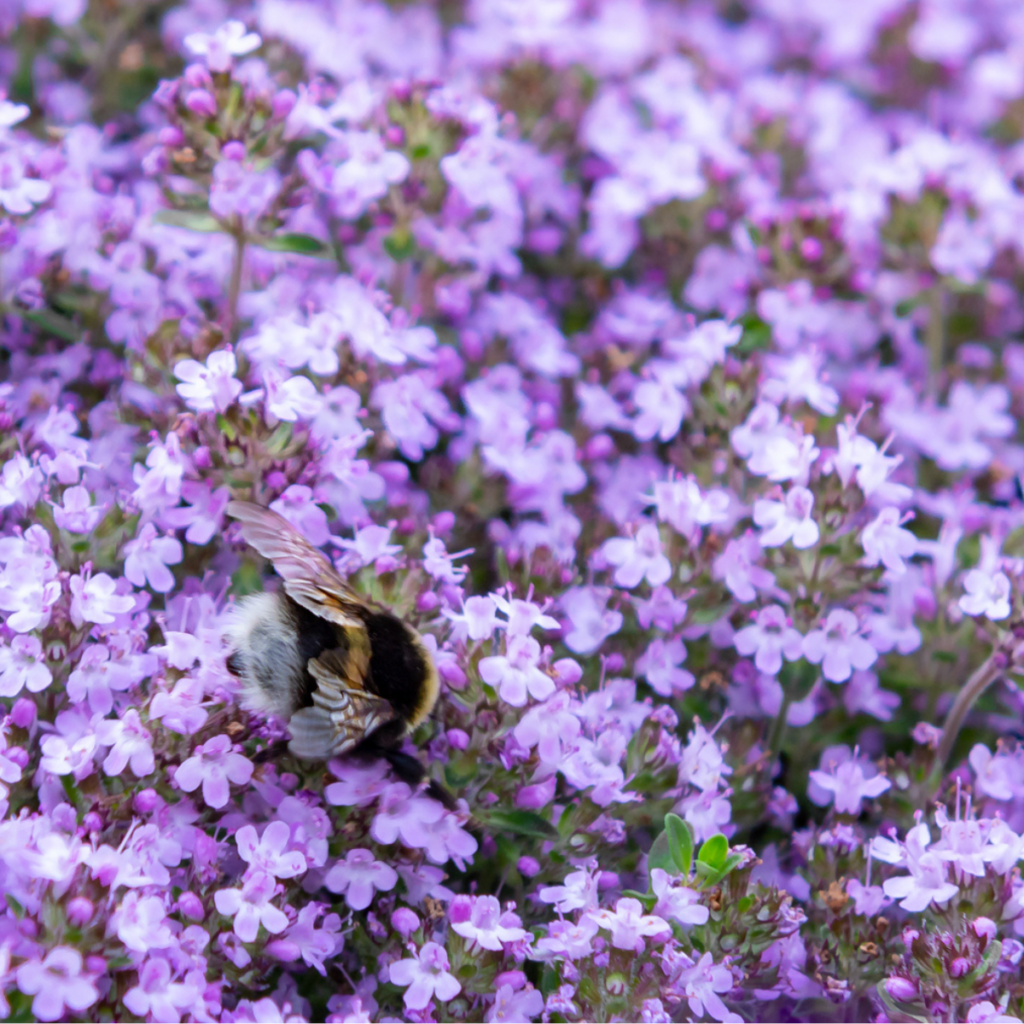
Follow these tips to help your Lemon Thyme flourish:
Soil Quality: Opt, for draining soil when planting it. Although it can survive in poor soil conditions proper drainage is essential.
Watering: Lemon Thyme only needs minimal water once established; just give it an occasional drink during dry spells.
Trimming: Regular pruning encourages growth and will prevent the shoots from becoming woody. This is especially important of your using it in the kitchen. Woody plants have less flavor. 😊
Companion Planting with Lemon Thyme
Lemon Thyme pairs perfectly with variety of herbs and vegetables due to it’s it’s laidback growing needs. It’s lemony aroma helps keep bugs at bay which can be handy for crops that are sensitive to pests. Here are a few of my favorite:
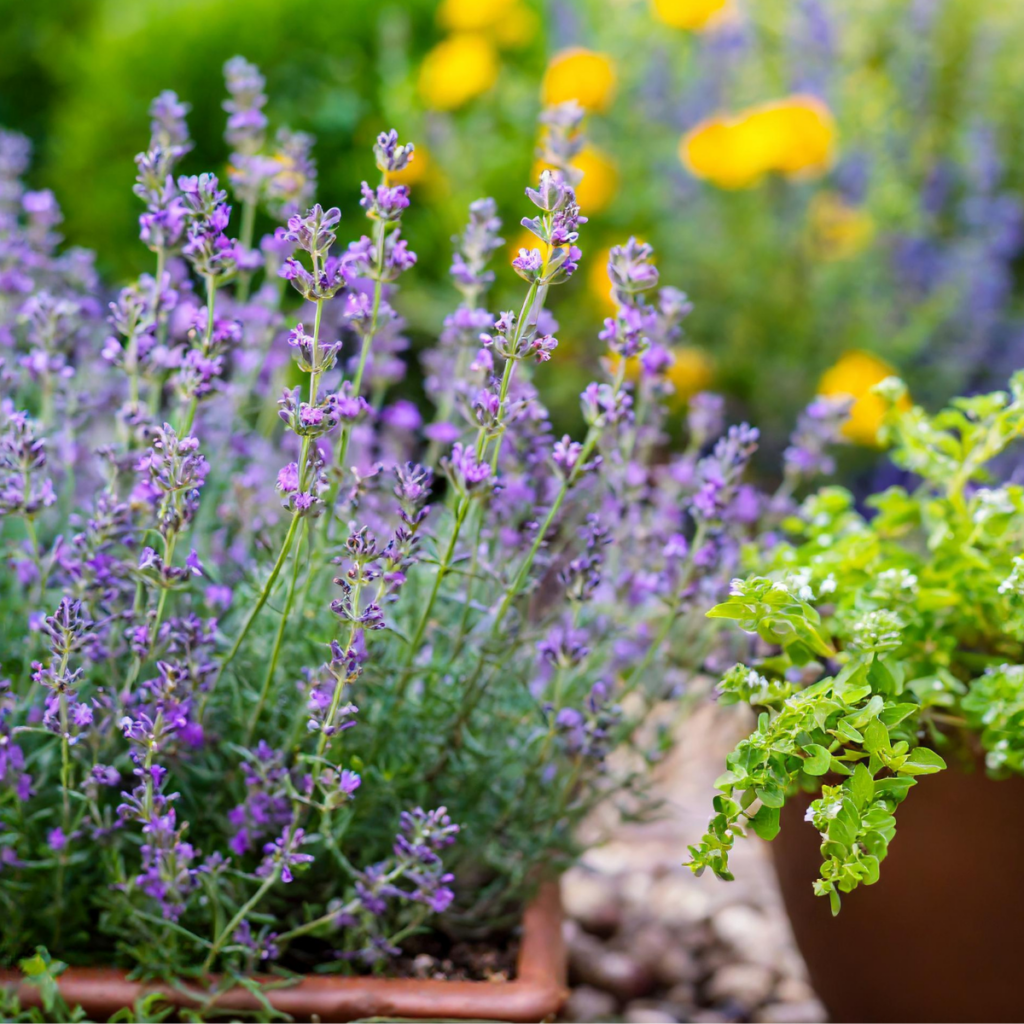
1. Lavender (Lavandula)
Lavender and Lemon Thyme share similar growing requirements, including a love for full sun and well-drained soil. They both possess strong scents and attract pollinators, creating a beautifully aromatic and visually appealing section in your garden.
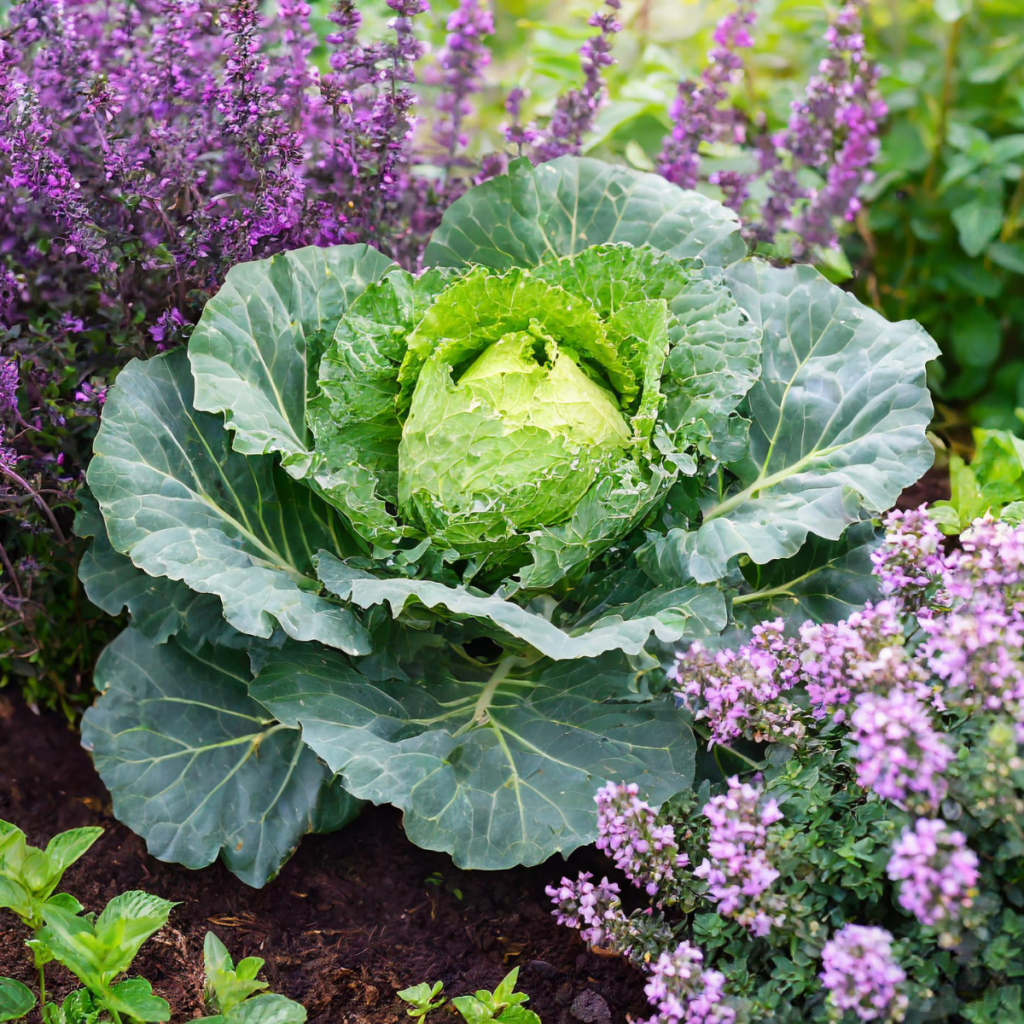
2. Cabbage Family (Brassicaceae)
Cabbage, broccoli, kale, and other Brassicas can benefit from being planted near Lemon Thyme. Pests like the cabbage moth are easily deterred by the lemony scent that I’ve grown to love.
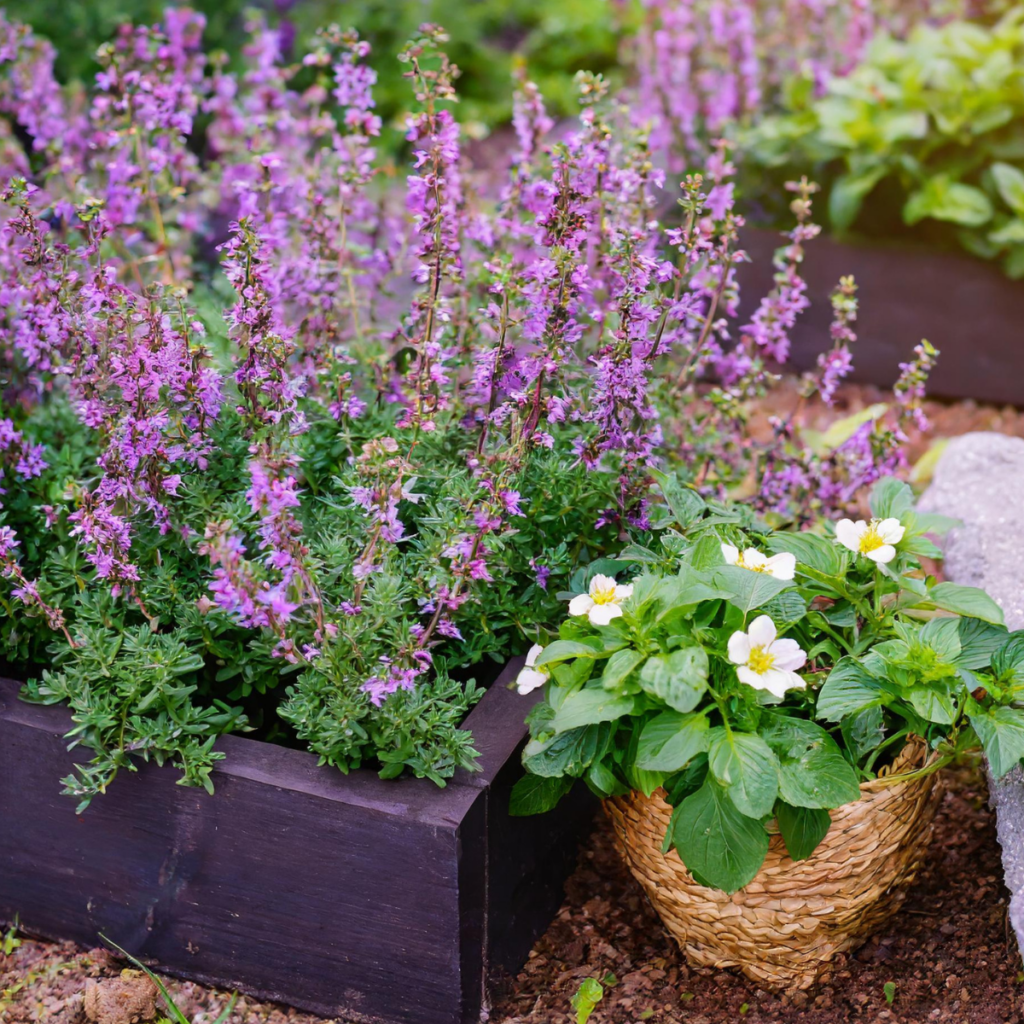
3. Strawberries (Fragaria × ananassa)
Strawberries are so sweet and supple, it’s no wonder pests love these red little fruits. Lemon Thyme can be planted together to help deter pests that find these strawberries so fond, and their growth habits are complementary in garden beds or containers.
To wrap it up
Flowering Lemon Thyme is not only a delight for the summer senses but a utility powerhouse. Its low maintenance and multifunctional uses make it a great choice for low maintenance sensory gardens or places you would rather not have grass. Whether it’s the paths that release its lemony scent as you brush by, the culinary zest it adds to dishes, or its health-promoting properties, Lemon Thyme is a must-have for a delightful sensory garden.
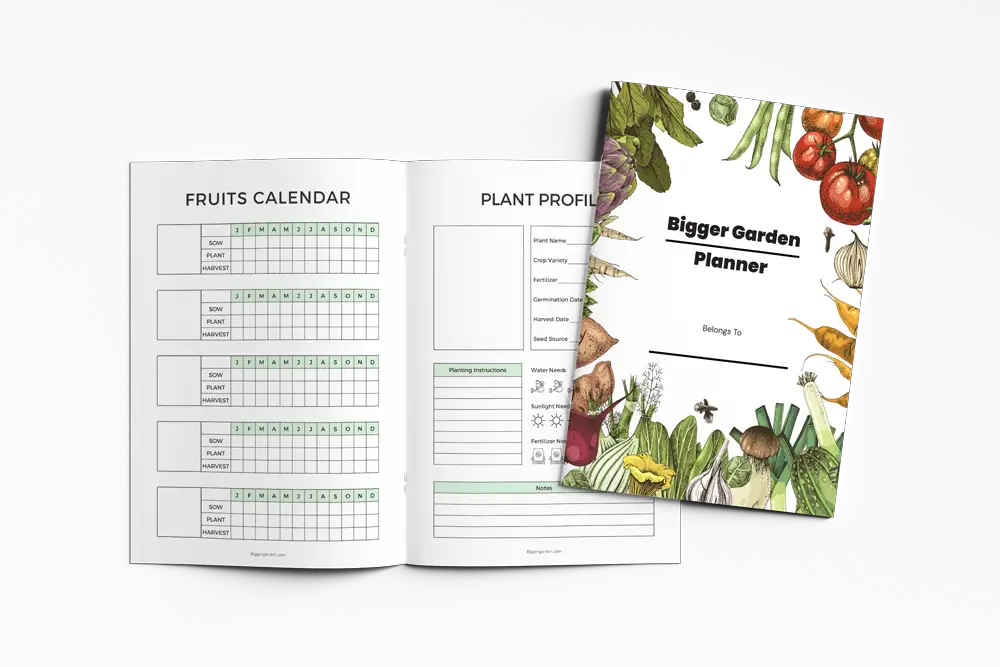

Before you go!
11 No Mow Ground Cover Plants To Replace Your Grass With
11 Houseplants with Red Leaves
11 Drought Tolerant Shrubs to Grow in Warm Climates
10 Dwarf Weeping Trees For Small Gardens